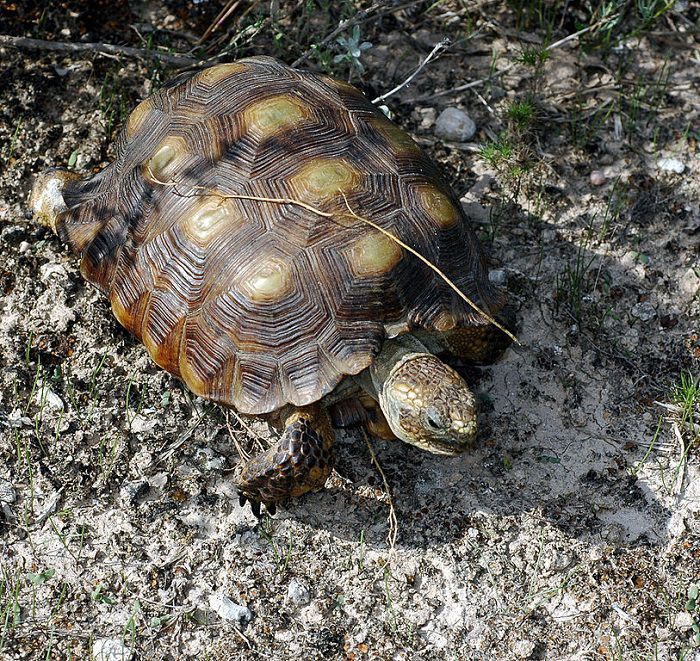Table of Contents
Unlike ‘regular’ pets such as cats and dogs, tortoises are relatively quiet animals that generally only make a hissing sound when startled or disturbed. And contrary to what you might think, the hissing sound made by a tortoise is not even a vocal sound; it is the sound that comes from the animal pulling back its head rapidly. When the head is drawn quickly back into the shell, air is expelled. It is this that makes this hissing noise.
Apart from this though, are there any other sounds that tortoises make? Well, some owners hear theirs making a squeaking-like sound and wonder what it is.
make? Well, some owners hear theirs making a squeaking-like sound and wonder what it is.
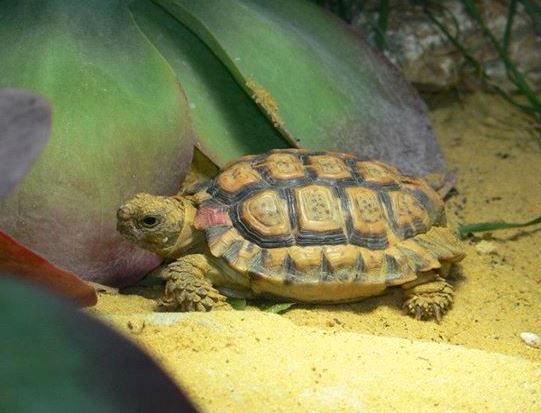
Speckled Cape Tortoise 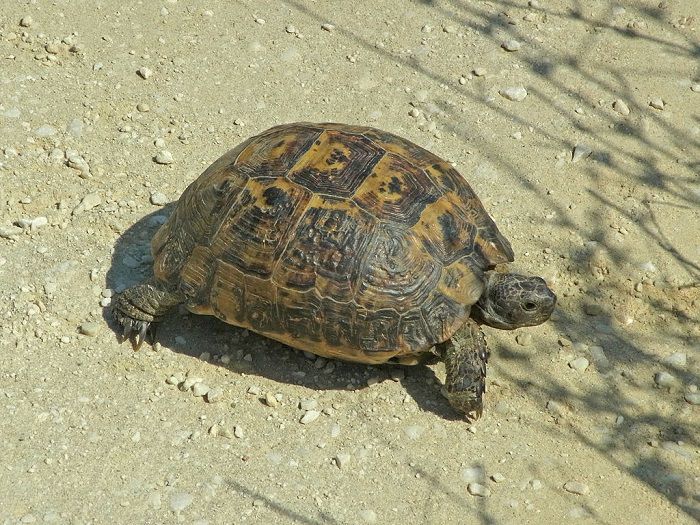
Spur-Thighed Tortoise 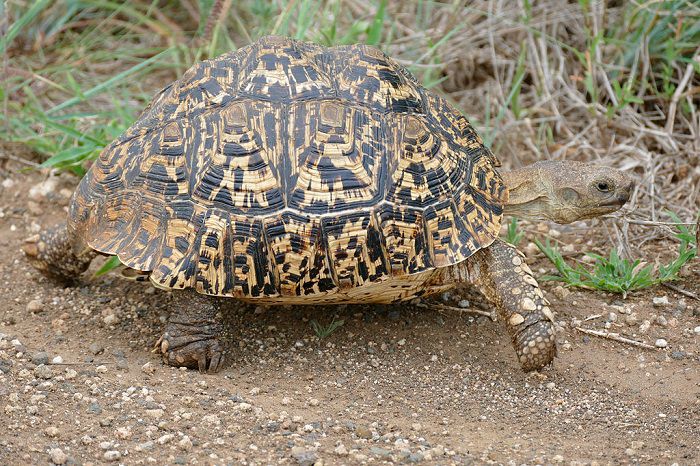
Leopard Tortoise
My Tortoise is Making Weird Noises
A squeaking sound coming from your tortoise might initially cause you to panic and worry that it might be related to a respiratory infection. However, this is not always the case. In fact, many tortoise owners have reported squeaking or whistling sounds coming from their pets at various times over many months, or even years.
In some cases, the culprit can be something stuck inside the tortoise’s nostril, like a piece of grass or gravel. It could even be the sound of your pet’s stretched skin rubbing on the shell at night when it’s cold.
If your tortoise is making weird squeaking noises but generally seems fine otherwise, it is more than likely nothing to worry about. Nevertheless, a squeaking noise can sometimes be a sign of illness, so it is worth monitoring the tortoise to ensure that no other symptoms develop. You might also want to speak to a vet in case your pet has anything stuck in its nose. If it seems distressed, call a vet for advice.
Tortoise Squeaking When Breathing
While most tortoises do not make any noise, some will make what appears to be a squeaking noise when breathing. As mentioned above, this could be caused by illness, but other times it is caused by narrow nostrils. The ‘squeaking’ is the sound made when air passes through these narrow openings.
An environment that is too dry can also be the cause of the squeaking noise. It is important for substrate in your tortoise’s enclosure to be damp but not wet. Low humidity levels can cause your tortoise’s nostrils to become dry, which could be the reason for the squeaking/whistling sounds. Conversely, it is also crucial to ensure that the humidity levels are not too high as this can result in shell rot.
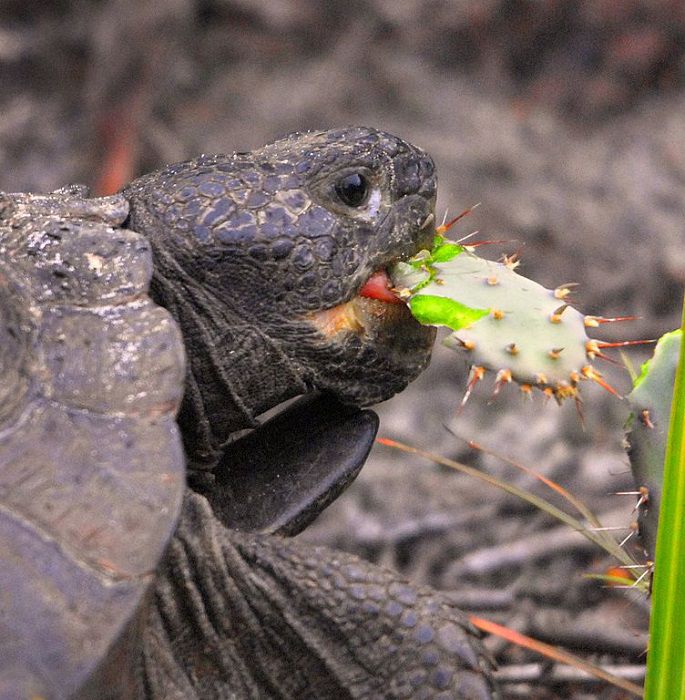
Gopher Tortoise 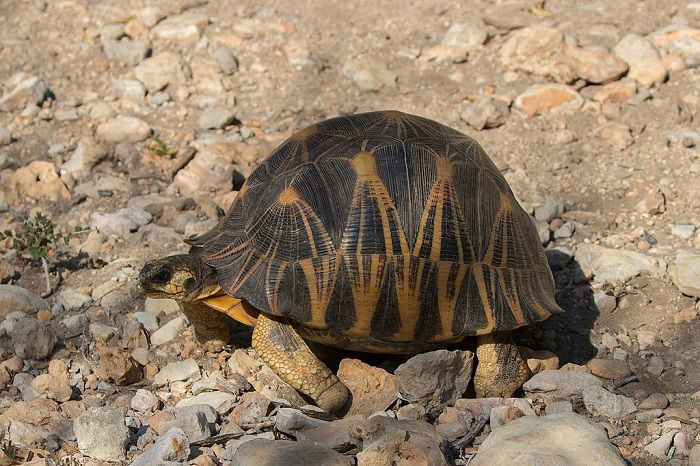
Radiated Tortoise 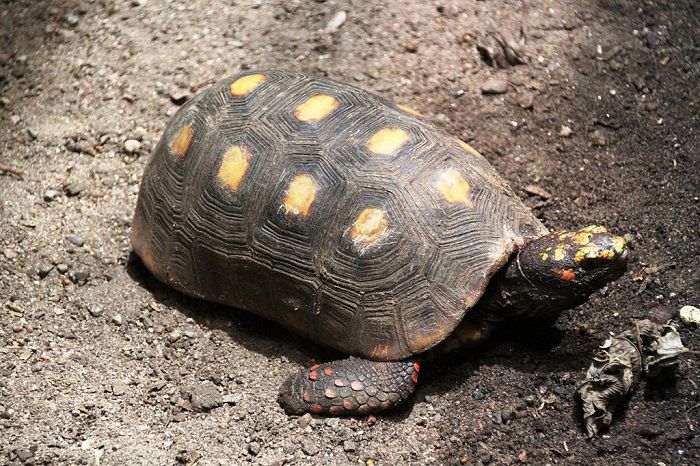
Red-Footed Tortoise
Tortoise Respiratory Infection
The above-mentioned issues notwithstanding, the main cause of squeaking in a tortoise is usually respiratory infection. Nonetheless, squeaking is rarely the only sign. You need to also look out for other signs of illness, including:
- loss of appetite
- weight loss
- nasal discharge
- panting
- lethargy
- watery eyes.
If you notice any of these symptoms in addition to the squeaking sound, it is time to call a vet as respiratory infections in tortoises can become quite serious.
Important: Without early intervention and adequate treatment, a tortoise’s lungs could be severely compromised by a respiratory infection.
As tortoises do not have a diaphragm, they are unable to cough up mucus from their lungs, meaning it will accumulate in these organs instead. Tortoises also do not have cilia in their lungs. Cilia are those minute hair-like organelles present in almost all mammals that help to clear mucus from airways. Tortoises, therefore, require immediate treatment should a respiratory infection be suspected.
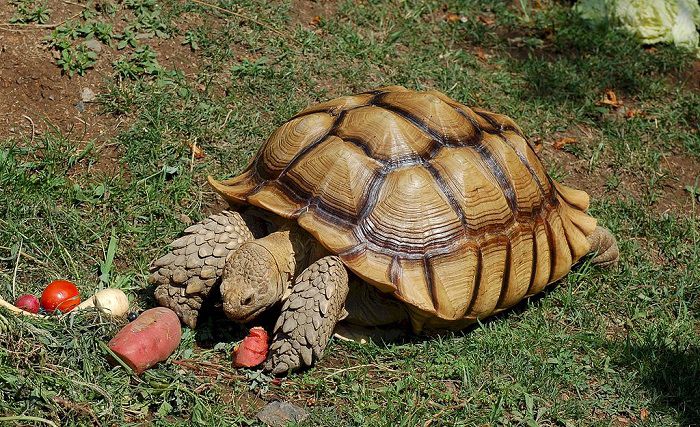
African Spurred Tortoise 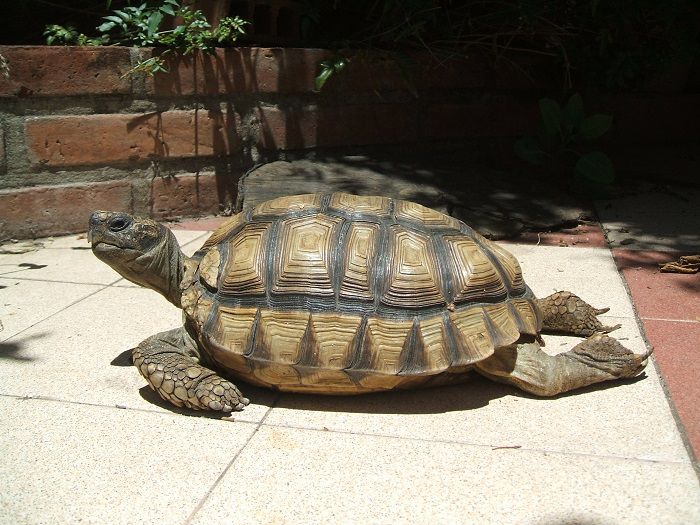
Chaco Tortoise 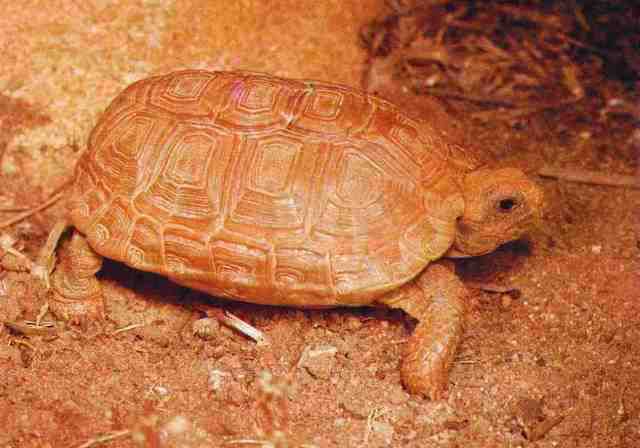
Boulenger’s Cape Tortoise
Treatment for a Respiratory Infection
A vet will usually prescribe a course of antibiotics if the infection is a bacterial one. You will also likely be advised to make some changes to your tortoise’s environment.
If you have more than one tortoise, it is probably best to separate them to allow the sick one to recover more quickly as well as to prevent the other(s) from becoming infected.
You might be advised, for example, to raise the temperature of its enclosure, which will help the creature fight the infection. You will need to wipe away any discharge from the nose to prevent the nostrils from becoming blocked as this can cause more distress for your pet as well as stop it from eating.
A warm soak can help to remove excess mucus from the nose. The water should be around 85F and you can place your tortoise in the water for a couple of minutes. Once you lift the tortoise out, tilt it gently face forward as this will help to expel excel mucus. Doing this daily will help speed up your tortoise’s recovery.
Photo Credits:
- Featured Image (Texas Tortoise): Clinton & Charles Robertson
 – CC BY-SA 2.0
– CC BY-SA 2.0 - Speckled Cape Tortoise: Abu Shawka – CC BY-SA 3.0
- Spur-Thighed Tortoise: Donkey shot
 – CC BY-SA 3.0
– CC BY-SA 3.0 - Leopard Tortoise: Bernard DUPONT
 – CC BY-SA 2.0
– CC BY-SA 2.0 - Gopher Tortoise: Andrea Westmoreland – CC BY-SA 2.0
- Radiated Tortoise: Charles James Sharp
 – CC BY-SA 4.0
– CC BY-SA 4.0 - Red-Footed Tortoise: Bjoertvedt
 – CC BY-SA 3.0
– CC BY-SA 3.0 - Boulenger’s Cape Tortoise: Abu Shawka – public domain
- Chaco Tortoise: Arteivanna – CC BY-SA 4.0
- African Spurred Tortoise: Melissa Mitchell
 – CC BY-SA 3.0
– CC BY-SA 3.0

